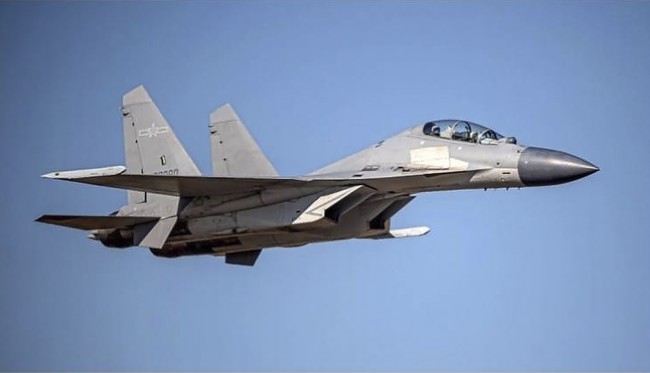
Many conservatives are of the mind that the U.S. should not involve itself in foreign conflicts, pointing specifically to the war in Ukraine and the ongoing conflict involving Israel, Hamas, and now Iran. The argument is that the United States has enough problems at home, specifically with its porous borders.
While that argument has merit, it does raise the question of where the U.S. draws the line in terms of its foreign policy. When do we decide that we will divest ourselves of foreign conflicts, and what risks are created by doing so?
Consider that on Saturday, Taiwan expressed its gratitude to the U.S. for passing the $95 billion spending package that, for the most part, is meant to aid Ukraine in its war with Russia. According to Reuters, part of that money is earmarked for Taiwan. The U.S. is the biggest supplier of arms to the country, and leaders there have been lodging complaints about the lack of U.S. focus on supplying military assistance to Ukraine and not providing things such as Stinger anti-aircraft missiles to Taiwan. Taiwan has been
Even if one is opposed to sending arms to Taiwan, the country has every reason to be nervous. Yes, it does supply the United States with key components for technology, but it also lies squarely in the crosshairs of China. China does not recognize Taiwan as a nation and has had no qualms about asserting itself. Taiwan’s Ministry of Defense reported that on Sunday, during the previous 24 hours, 14 Chinese aircraft crossed the meridian in the Taiwan Strait. Reuters reported:
Some Chinese aircraft on Saturday got as close as 40 nautical miles (70 km) from the northern and southern parts of Taiwan, according to a map the Taiwanese ministry provided, though that remains outside its contiguous zone, which is 24 nautical miles from Taiwan’s coast.
One Taiwanese official referred to the action as “very provocative and very irresponsible behavior.”
Meanwhile, Just the News notes that on Friday, the Biden administration announced that it would pull 1,000 service members out of Niger during the coming months. The U.S. has had a presence in Niger at Aribase 201 as part of a counterterrorism effort. The State Department reported that in 2022, Boko Haram was active in the area, along with affiliates of al-Qaida and the Islamic State. There were 180 terrorist attacks in the country last year. Niger said that it would no longer cooperate with the United States in the operation on the heels of a junta last year last year, which essentially sidelined the military presence.
Be that as it may, Rep. Matt Gaetz (R-Fla.) released a whistleblower report last week that the U.S. is still funding the base at a cost of $1 million per month and that U.S. service members have been stranded there. According to Gaetz, personnel at the base lack basic supplies, including medical care and potable water. Gaetz said that there is a coverup “to conceal the humiliating failures of the Biden administration in Niger, throughout Africa, and throughout the world.”
Other countries are establishing a presence in Iran. The article noted that Russia has dispatched 100 officials from its paramilitary Africa Corps to replace the Wagner Group. Just the News said that Iran was working on a secret deal with Niger to access uranium for its nuclear program. Finally, China and Niger signed a series of “oil cooperation agreements.”
The case can be made that in the 21st century, a policy of isolationism does not work. But given the turn that the world has taken, especially in light of the debacle that ensued when Biden withdrew from Afghanistan, the biggest question is who is minding the store?
The U.S. is under the aegis of an administration that has shown itself to not only be weak-kneed but complicit when facing America’s threats, and that begins at the border and stretches across the world. It may not be in the best interests of the United States to put boots on the ground in every hot spot on the globe, but the rest of the world has taken notice of who is in charge and is taking advantage of it.











